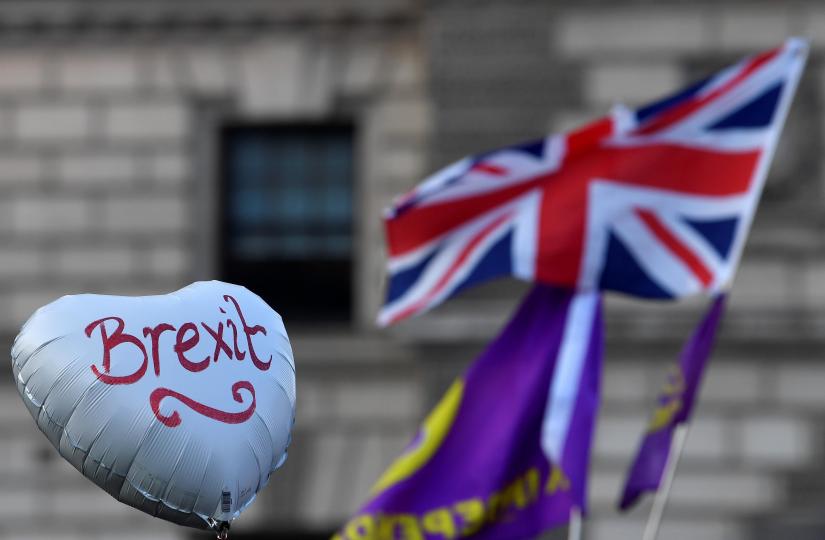 Delay in Brexit deal execution and uncertainty over no-deal prospects have slowed down Bangladesh's export growth to the United Kingdom (UK), the third largest export destination for the country.
Delay in Brexit deal execution and uncertainty over no-deal prospects have slowed down Bangladesh's export growth to the United Kingdom (UK), the third largest export destination for the country.
In the fiscal year 2018-19, Bangladesh’s export earnings from the UK posted a 4.51% growth to $4.16 billion against an 11.76% growth to $3.99 billion in the fiscal year 2017-18, according to Export Promotion Bureau (EPB) data.
The apparel sector, the largest contributor to the national exports, has contributed $3.85 billion, which is 92.56% of total exports of $4.16 billion.
In addition, the growth of Bangladesh's exports to the UK is lower than its other destination countries as well as the overall export earnings.
Bangladesh’s overall merchandise export earnings have registered a 10.55% growth to $40.53 billion in the FY19.
Bangladesh’s exports to the US market rose by 14.92% or $893 million to $6.88 billion, which was $5.98 billion in the previous fiscal year. Apparel goods earned $6.13 billion, posting a 14.60% growth over the previous years’ earnings.
Exporting goods to Germany, the second largest destination, Bangladesh earned $6.17 billion, up by 4.79%, which was $5.90 billion in the FY18. Germany imported 15.23% goods of Bangladesh’s total exports.
Prime Minister Sheikh Hasina is now in London in a state visit, where she will be meeting Bangladeshi envoys stationed across Europe at a conference in London, UK.
In the meeting she will discuss several issues such as enhancing Bangladesh’s image in Europe and increasing trade, attracting more investment in the country and post-Brexit situation and its impact on Bangladesh, and addressing possible issues to improve Bangladesh’s diplomatic operations in Europe.
Economists observe that this visit would pave ways for increasing trade in post-Brexit and post-LDC graduation situation.
Why this slowdown
Trade analysts and exporters blamed the ongoing row over Brexit, which made the importers cautious about making import deal as they were in dark about what would follow after the execution.
Brexit uncertainty made it difficult for importers to decide about importing goods as they did not know what would be tariff rate after the Brexit, which hampered British trade with the globe, they explained.
“Over the uncertainty, a good number of big companies including Primark shifted office from London to Dublin. This uncertainty is there to a great extent among the business people," said Bangladesh Garment Manufacturers and Exporters Association (BGMEA) President Rubana Huq.
As a result, Bangladesh's export growth witnessed a slower phase in the last fiscal, she said, mentioning UK’s internal shocks, which hit its own economy.
"As an exporting country, Bangladesh will keep on enjoying the same trade facilities, what we are enjoying under Everything but Arms (EBA) from the European Union (EU) and there will be no change after the execution of the deal," she assured.
Economists also have echoed the manufacturers saying that consumers' behaviour changed over Brexit, while devaluation of pound against US dollar is another reason for the slower growth.
“The pound was devalued by about 5% against US dollar, which made impost costlier. On the other hand, due to Brexit uncertainty, consumers have reduced their consumption spending,” said Centre for Policy Dialogue (CPD) research director Khondaker Golam Moazzem.
Though the inflations rate and employment remained stable, the consumption was lower than previous times, which cast adverse impacts on imports from the globe including Bangladesh, Moazzem mentioned.
“Since the prime minister will talk to ambassadors and high commissioners in London, she can direct them to work so that Bangladesh can retain the existing trade facilities in the post- Brexit times,” said Moazzem.
He suggests that Bangladesh must take advices and technical support from the UK so that it could address post-LDC graduation challenges and create skilled workforce.
However, trade analysts as well as economists think that the impact would not last long, if the deal execution was done within the deadline as the UK government committed to provide duty and quota-free market access, even after Brexit was completed.
“Since the UK government made it clear that it would provide the same level of European Union commitment to trade facilities for the LDCs even after Brexit, the impacts on Bangladesh would not be much, rather limited,” said Mohammad Hatem, former vice president of Bangladesh Knitwear Manufacturers and Exporters Association (BKMEA).
He warned that further delay in reaching a consensus about a trade deal with the EU countries after Brexit would prolong the slowdown in trade.
In a referendum held on June 23, 2016, the UK decided to leave the EU as 52% of the people voted for an exit, while 48% voted to stay with the union.
The current deadline for the UK to leave the EU is October 31, but if it fails to agree to a deal to do so, the legal default is to leave with no deal on that date.






